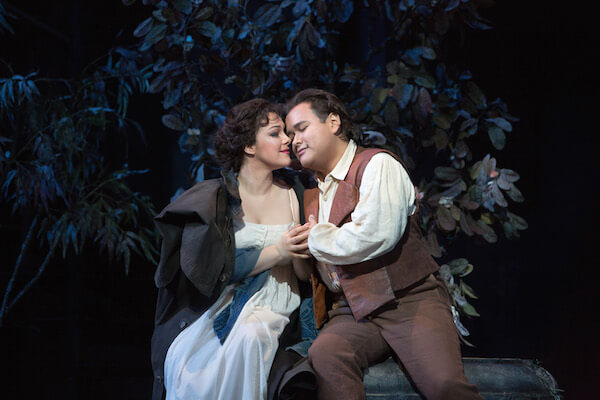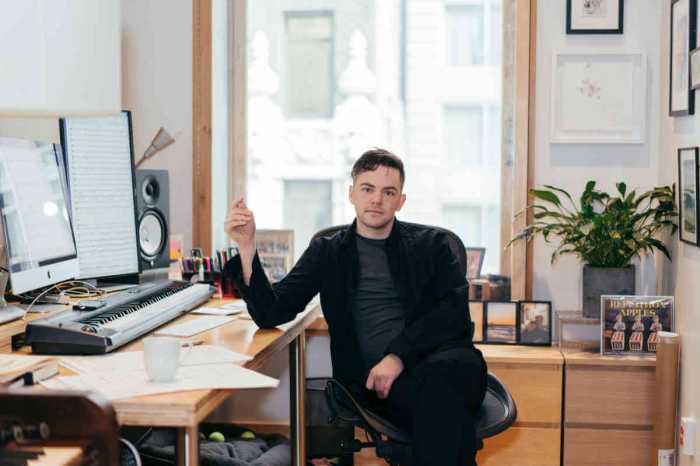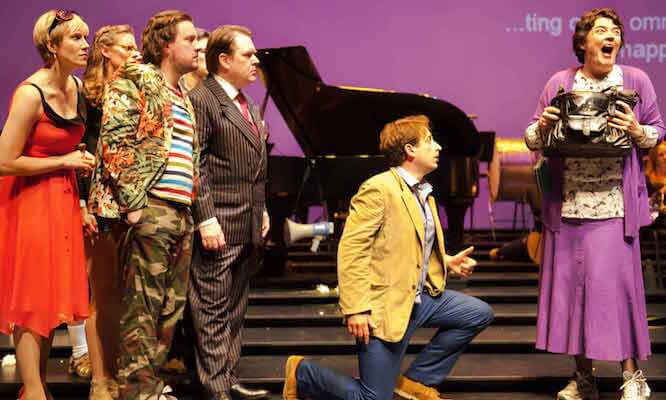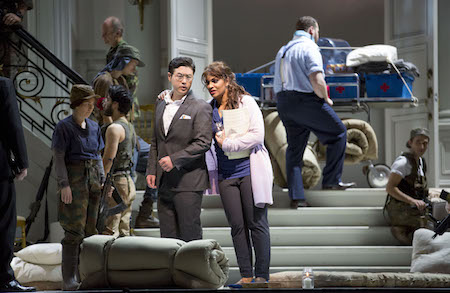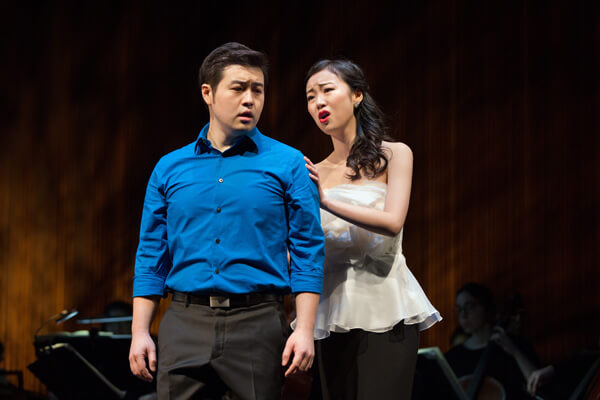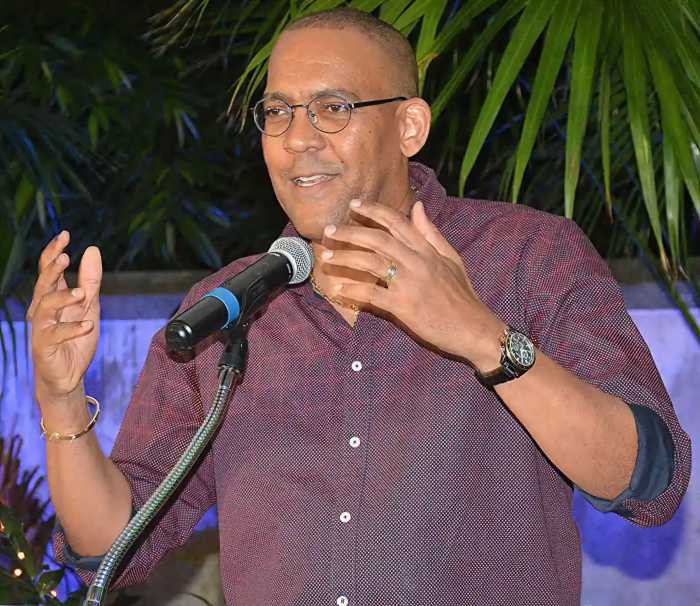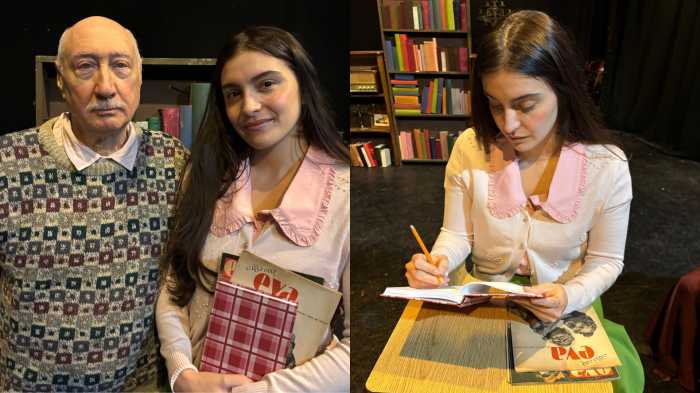BY DAVID SHENGOLD | “I heard a terrific performance at the New York Philharmonic.”
How often these days do we hear or think that sentence? It does happen, and it happened March 8, largely thanks to the always welcome guest conductor Christoph von Dohnányi, now 85 and in full command. The piece at hand was Johannes Brahms’ “Ein Deutsches Requiem,” a project of that composer in his early 30s, colored by the deaths of his mother and of mentor Robert Schumann. Von Dohnányi prepared the players in depth to execute the dynamic shifts he asked of them; attacks were precise and smooth. New York Choral Artists, prepared by Joseph Flummerfelt, likewise performed in sterling fashion throughout, tapering their sound in immediate response to the maestro’s commands. The only passing blemish on the performance was a bit of brass flatting in the –– to my tastes, rather windy –– final section, “Selig sind die Toten”.
As opposed to the Verdi or Mozart equivalents, this “Requiem” –– set to Brahms’ own choice of sacred texts, not the standard liturgy –– is mainly a choral work, with only three solos. Even those solos have choral interventions! Camilla Tilling has been singing in New York since her striking debut as Corinna in City Opera’s “Il viaggio a Reims” in 1999. Given that, the purity of her tone and ability to sustain long phrases is remarkable. The timbre, shining in the middle, turned a little whiter up top; but she served the music well.
Brahms and Donizetti at Lincoln Center
So did Matthias Goerne, who had also taken the two baritone solos the last time the Phil offered this work, in 2007. The thoughtful German singer offers a more expansive if somewhat grainier sound than he did some years back, but the basis of its deployment is always legato phrasing, and he can certainly encompass the assignment’s full range with ease. What Goerne is thinking when he looks at the roof, turns sideways, or holds his hands out as if embracing a life preserver while on the concert platform is anybody’s guess, but that is hardly new. It’s always a pleasure to hear him.
The current Met season is awash in Donizetti, with a record five of his works in the mix along with two Rossinis. Nothing wrong there save that this season offers no American or Slavic works, no Britten, no Handel nor Gluck; plus just one Wagner, one Strauss, and one French opera. From March 9’s performance it remained clear that “Don Pasquale” is unquestionably a masterpiece of comic opera –– though its inherent elegance is fought and belittled by the broad, trivial Otto Schenk production, the last louche blast of the Volpe Era at the Met.
Ambrogio Maestri loomed large in the title role, singing robustly save for one or two exposed low notes. He was quite apt and funny, though his constant efforts to upstage colleagues evoked a bad old buffo tradition. Native diction helps; the quick patter of “Cheti. cheti” is not his strongest suit.
In her second performance at the Met, Eleonora Buratto proved well worth encountering. The Mantua-born soprano is the first Italian Norina the company has deployed since the great Adriana Maliponte in 1975. Like Maliponte, Buratto is essentially a lyric soprano with a considerable middle voice and some florid ability rather than the tweety-bird type of coloratura most often featured in the role (Roberta Peters and Reri Grist furnish two outstanding examples). Virtually nothing was interpolated.
Buratto’s repertory — like Maliponte’s –– includes such non-coloratura parts as Mimi, Liu, Amelia Boccanegra, Alice Ford, and Countess Almaviva, and it would be good to hear her clear, somewhat dark-timbred instrument here in the Puccini assignments. The others might work too, though for the other three I’d need more evidence than we had in “Don Pasquale” of a more than desultory trill. Moving with grace, especially when in veils, she made the character less of a brazen harlot than the production intended Anna Netrebko to enact when it was new.
Still, Burrato, like the other artists, was saddled with reproducing as much of Schenk’s unfunny, often unmusical “business” — twirling and vamping and pillow fights –– as revival director J. Knighten Smit could muster.
When seeing such painfully unfunny “gags” enacted, one has to wonder: Does anyone in the company’s artistic administration ever attend the legitimate theater? The same thought occurs when –– during “Don Pasquale,” as during so many new Met productions including the recent “Manon Lescaut” — the action and dramatic momentum are killed dead by endless scene changes.
Maurizio Benini’s jerky, unpredictable tempos did not help the singers or the score.
Arguably, Mariusz Kwiecien’s Malatesta back in 2006 stole the show; after a pitch-challenged, coloratura-challenged first act, Levente Molnár improved and made a game try at mimicking Kwiecien’s hip demeanor but —though not an affront, like Massimo Cavalletti in “Manon Lescaut” –– didn’t seem quite worth the importing. Since when does North America need to import lyric baritones, of all things?
Some very enjoyable singing indeed came from Javier Camarena, the Ernesto, with his beautiful, even tone, natural phrasing, and ringing top. The Met/ New York Times synergistic information machine has associated the rising Mexican tenor with encores, so much of the crowd tried to obtain one after his huge D flat crowning his excellent solo scene. He’s affable onstage rather than a defined stage presence, but Camarena’s popularity seems deserved and likely to last.
David Shengold (shengold@yahoo.com) writes about opera for many venues.

